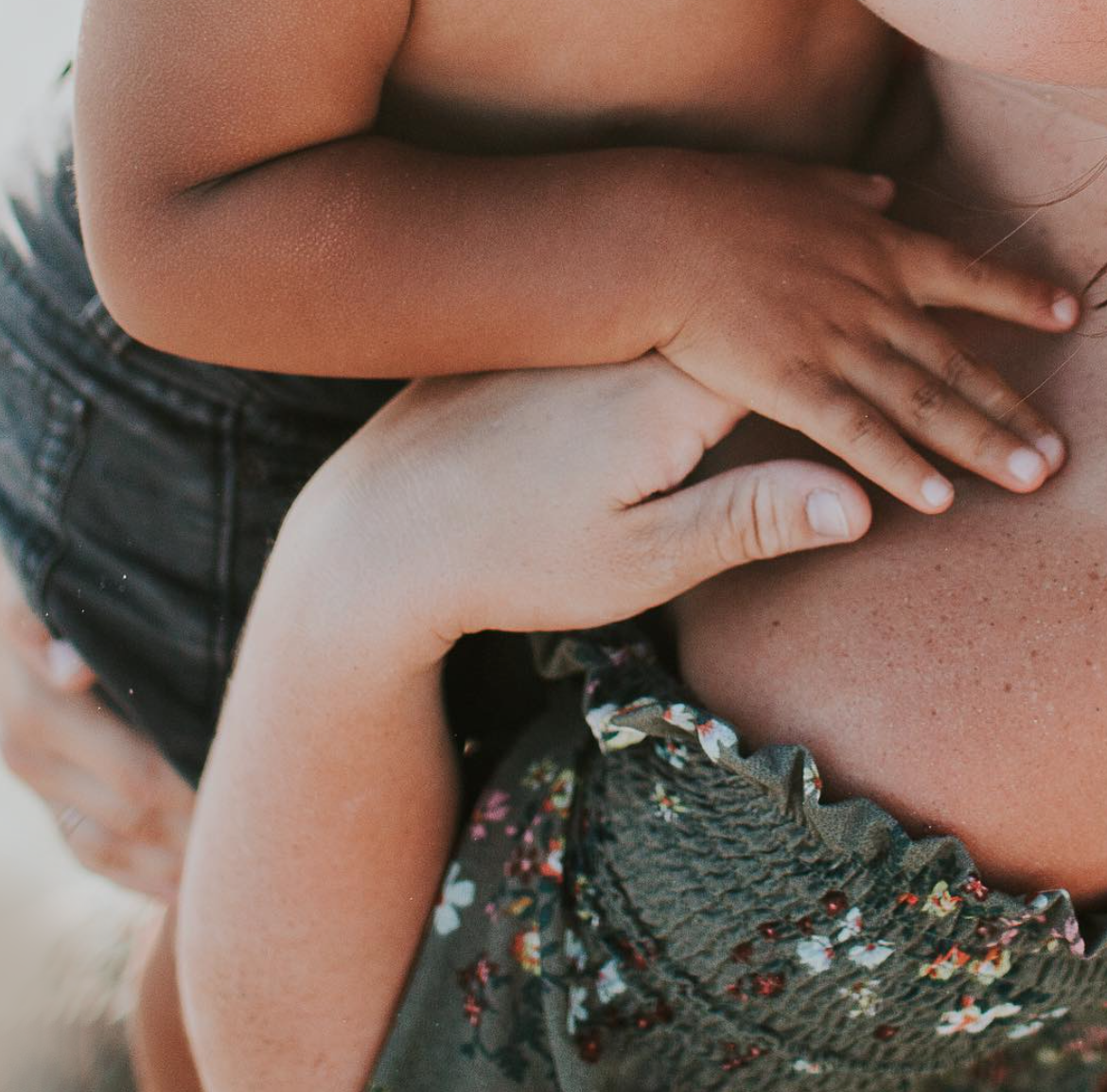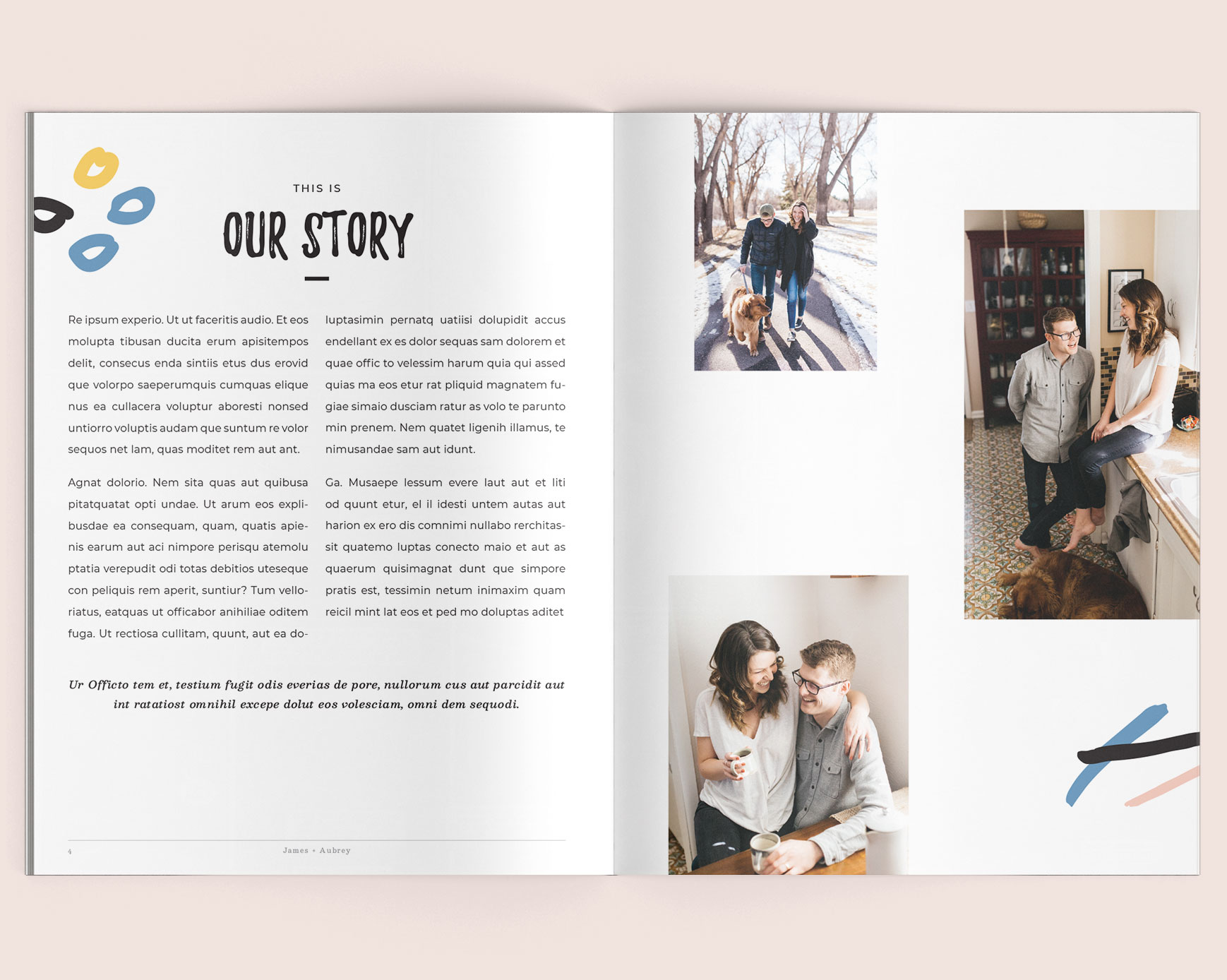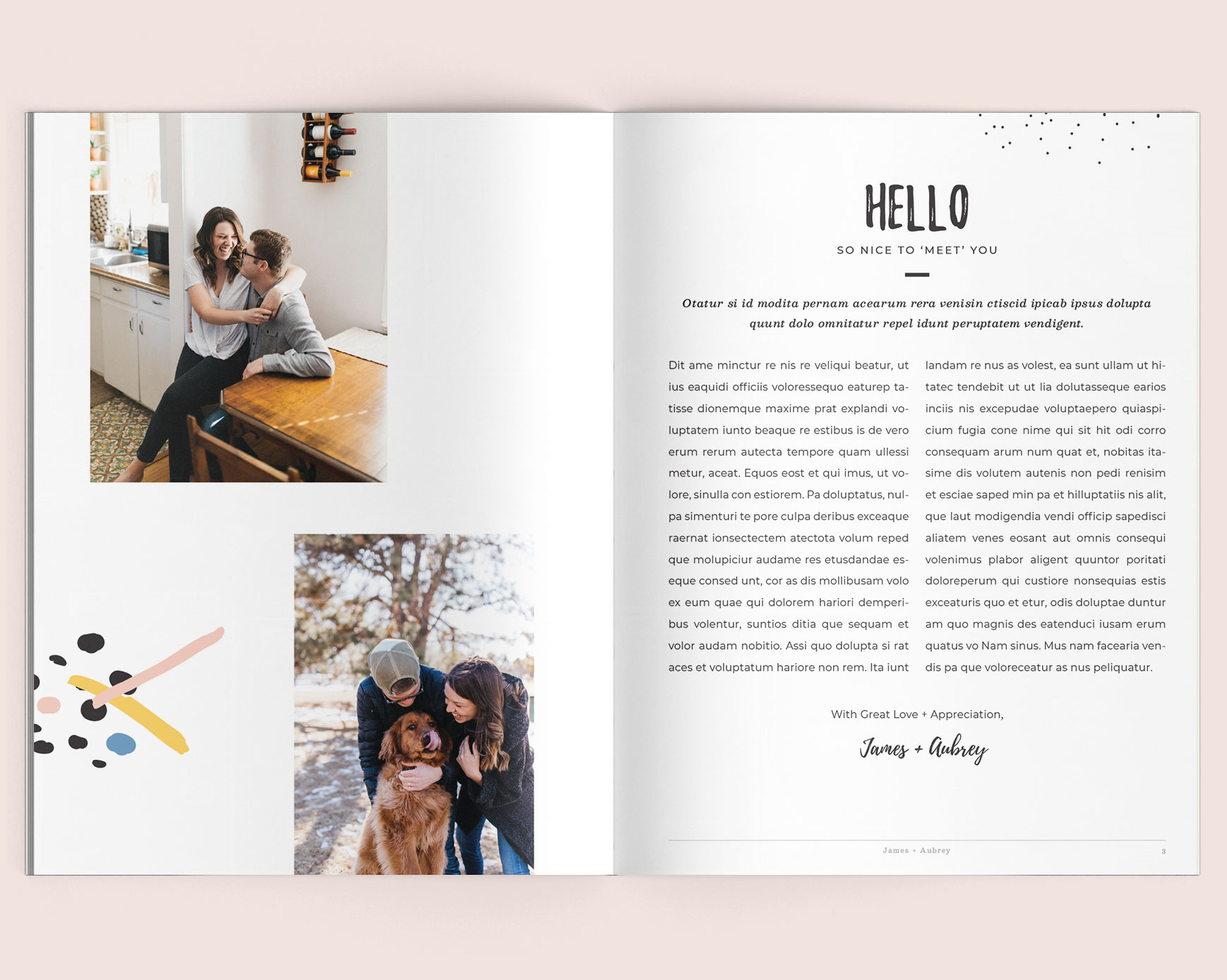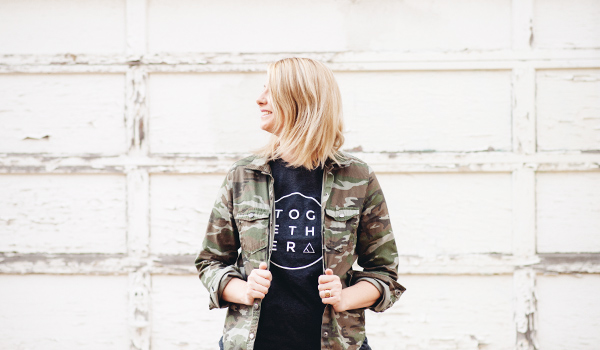
My mom, Pat, is one of my favorite people. She’s kind, intentional, and eager to learn. However, that doesn’t mean that as an adoptive mom and transracial adoptee we haven’t experienced some heart-wrenching and painful moments together as we both navigate our individual and shared adoption journey. In this blog, you get a glimpse into the intimate and messy work it takes to walk the transracial adoption road from your child’s infancy to adulthood. I hope you leave with some ways you can better prepare or some convictions on how to adjust your approach. Most of all, I hope you feel both the weight of your responsibility as adoptive parents as well as the hope of healing for your adoptee.
Pat, you adopted when open and transracial adoption were relatively uncommon. What was that experience like for you and your husband?
Pat: At first we were very unsure about open adoption. But once we went through classes and learned more about it we began to see the benefits. As much as we believed in it, it was still scary at first. It was hard to think that my babies had another mom. To be honest, I wanted to be the only momma. But, I wasn’t. And I knew what was best for my children was to embrace their birth mothers and families and involve them in their lives. It was a good decision. Some of our friends thought it was a crazy idea, but we knew otherwise, so we pursued it. I searched for 5 years and finally found and contacted my oldest daughter’s birth mother, but we had an open adoption with Torie’s birth mother from the beginning. With her birth mother’s help, we sought out Torie’s birth father when she was 10. However, that relationship has been less successful. For the most part, though, open adoption turned out really well.

Torie: I think my mom probably says, “for the most part,” because open adoption doesn’t resolve the loss an adoptee feels at having been let go by the most important person in their life. Open adoption is, and was, good for our family. I felt and continue to feel absolutely adored by my birth mother and birth grandmother. Over time, I’ve developed so much awe and respect for my mothers and the awkward, confusing, tense, joyous, agonizing process they must have endured together as they navigated sharing the title of mom. I have a healthy open adoption because of the emotional maturity and humility of my mothers and their willingness to adapt to my growing needs as a child and adult. However, I still struggle knowing that the love I have for my mom is so deeply different than the love I have for my birthmother; I see my birthmother as a kind, caring aunt but not my mom, and I continue to navigate guilt and shame around who she is and is not to me.
Pat: Regarding transracial adoption, we were proud parents of beautiful babies. In many ways we were oblivious at first. Our babies were our daughters and we loved them. I remember feeling so very blessed. Some people stared; Some people commented on their beauty; Some people were supportive, some were not. Our focus was very much on our family. We were in our own little world of love. The realization that they would both need more than love came after the decision to adopt. When it did come, and it came early, we did address it in a variety of ways. For instance, we had friends that adopted transracially and our families spent a lot of time together when our children were young. Their Biracial daughter was the same age as our older daughter. Since Torie was 5 years younger at the time, she really did not benefit from that relationship. Additionally, I started a transracial adoption group with other families when Torie was very young. Unfortunately it only lasted a couple of years. Attendance in the group dwindled – maybe because families got busy or because their children developed friendships more organically as they grew and attended different schools. In our own family, we continued to talk about race, read books and filled our house with pictures, dolls and figurines that were representative of our children.
What I didn’t know then, but know now – it didn’t begin to scratch the surface of their need.
Pat: For my husband and me, the experience of raising children was great, but in hindsight we weren’t prepared. Though ignorance was bliss for us, and maybe even for our kids then, it’s not bliss now for us or for our children today as adults.
Torie: To be honest, hearing that my parents were oblivious is frustrating. It would have saved me a lot of heartache if they had been aware of the need to become educated BEFORE they embarked on transracial adoption. I’ve struggled a lot with anger towards my parents for not becoming what I would need before they chose to adopt. At the same time, I’ve gained compassion for them, knowing that in many ways they were failed by the adoption industry and adoption professionals who didn’t provide them with the necessary information or tools to raise Black biracial children. A lot of my growing relationship with my mom has been balancing the fact that she messed-up with the fact that she is now trying to be better. My desire to see adoptive parents better educated around race and my desire to see structural change within the adoption industry fuel both my Instagram platform and my graduate studies in Anthropology.
What do you wish you had during this experience that you didn’t at the time?
Pat: I wish I had had education around transracial adoption. I wish I had Black friends, family and community as well as diversity in church and schools. I wish I had the knowledge that I have now. I wish my daughters had healthy relationships with their birth fathers and/or relatives on the Black side of their family. I wish I had more wisdom and insight at that time.
Torie: I obviously wish the same. I can’t imagine what it would have done for my sense of self, racial identity development, and ability to navigate the world as a person of color had I been immersed in Black community and culture. I missed so much, and the catch up and learning curve is steep as an adult in ways that have definitely left scars.

How have your parent-child relationships evolved during different stages of development?
Pat: Though both my daughters are biracial, adopted, and grew up in the same family, they took in life experiences differently. They have very very different personalities, different birth family situations, and they process feelings differently. With my oldest daughter, I had a great relationship until age 13. We still talked a lot after that but during her teen and college years, she became selective in what she shared. She was a typical teenager, discovering how to cope with relationships in her birth and adoptive families while figuring out who she was. This caused her to at times, isolate and it created a strain on family relationships. Additionally, there were some other emotional issues she was dealing with. We arranged for long-term counseling. It helped. The older and more mature she becomes, especially since she’s had children, the better our relationship gets. I am thankful for the connection we have as adults. Now, we may not always think alike, but we have a good relationship and we talk often. She has always had difficulty verbalizing her feelings, but she is becoming more able to speak her mind and share her concerns and differing points of view with me. As an adult, she still deals with anger around adoption and race, but she tells me her faith has helped her cope especially when anger involves things from the past she can’t change. Both of these things make for a more honest give and take in our conversation which in turn results in a better relationship.
Things with Torie unraveled differently. We have had a very close and positive relationship for most of her life. I say positive, but in reality it was probably too close – somewhat co-dependent. Most teenagers reach a point where they naturally and healthily break away from parents and become more independent. Torie however, never went through that process. Now I know it was probably a part of her fear of separation. While I knew that all parents must at some point encourage their children to break away from the nest, it was hard to initiate that process knowing Torie had already lost her first mom. I didn’t want to traumatize her or have her think I didn’t value our close relationship and I didn’t want her to be close. In hindsight, counseling would have helped in navigating how to gently push her out of the nest in light of her adoption trauma.
Torie: Yes, I agree. As time went on and I got older we both realized that we had a less than healthy relationship. I have always been an affectionate and deeply invested individual, but I became intensely attached to my mom. I think my co-dependence was a coping mechanism for some of the grief and loss I felt through adoption. I have also always feared losing my mom and I think that spurred some of my attachment. I think being adopted makes you hyper-aware of loss and the possibility of being without family so I really embraced my mom for fear of losing her (she’s also really easy to love). I also was (and still am sometimes) very invested in her impression of me and her approval, which led me to trying to be the perfect child. Even though I had no reason to believe I would be unwanted if I didn’t meet their expectations, I felt the need to be a good child during that tense time for our family. I often felt like if I was the perfect child I would always be wanted. It brought me a lot of satisfaction to fulfill that role. If I did everything right, I wouldn’t have to experience rejection.
Pat: Growing up and throughout most of her life, Torie often expressed love and contentment with her family life. We laughed a lot, we talked a lot; I listened a lot and she shared deep pain around her strained relationship with her birth-father, but overall appeared, at least on the surface, to be happy and free-spirited, though intense and emotional at the same time. Though I regularly expressed and demonstrated unconditional love, she now tells me she felt she had to earn it. That was a confusing revelation to me. I have since learned this is not uncommon among adoptees.
Torie: My mom is right, she was effusive in her love and I felt loved. I realize now as an adult that I still feared losing that love and felt the need to achieve and behave in order to preserve it. It’s an irrational fear that many adoptees struggle with, it’s a fear that I think stays inside you as a result of that initial trauma of being severed from the first safe person you know. I try to emphasize whenever I talk with adoptive parents that grief, anger, and confusion related to adoption can lie dormant within an adoptee until a life shift (moving to college, painful breakup, loss of a job, birth of adoptees’ biological children) causes a catalyst that brings these emotions to the surface. I did have emotions around race, the strained relationship with my birth father, not fully fitting in with Black or white people and not having access to Black culture. I felt very loved and very much a part of my family growing up. But I was also distinctly aware of the fact that I didn’t look like my parents and that my family didn’t look like other families, and that would contribute to a feeling of being generally “out of place.” However, I primarily engaged with those feelings through introspection and creative writing. From the outside looking in, it seemed like I had a healthy outlet for expression of and navigation of my racial identity. But in reality, I was expressing curiosity, sadness, anger, confusion, difficulty to myself and navigating those emotions mostly alone. My parents loved me, but I didn’t think they could fully understand. I didn’t have transracial adoptee friends or Black people within my immediate vicinity to guide me, support me, or encourage me to bring these emotions out of my own head and into the world until I became active on Instagram three years ago. I believe I spent the majority of my adolescence and early adulthood either not realizing certain emotions or not having the community within which to articulate and engage with those emotions.
Pat: Three years ago, Torie came “out of the fog” and as a result, finally expressed feelings that were previously unrealized and unaddressed, such as loss, anger, anxiety, and discontent about adoption and about being raised surrounded by whiteness and without Black role models and Black culture. As an adult, after dealing with a heart wrenching break up, she began counseling. Sometime later, she created her business, Wreckage and Wonder and began an Instagram account that now has over 8,000 followers. We were and are proud of her for the way she is helping others through these endeavors. In the beginning and for the first year, one could sense the hurt and emotional pain she was feeling and out of that came advice for adoptive parents and empathy for other transracial adoptees. It was hard for me to hear but it was therapeutic for her and obviously helpful for her readers. I so wish I had had access to this kind of information and firsthand knowledge when I was parenting.
As time progressed, though her Instagram posts continued to provide good information, the tone changed a bit. People close to her, including me, sensed a kind of bitterness. To be fair, I need to add that many of her Instagram readers did not have the same reaction. Again, this was really a hard time for those of us who loved her. Sometime after that, I began to read about the powerlessness, sense of injustice and rage that many adoptees feel. So, I began realizing, there is more to this than meets the eye, and wondered to myself – do I really want her to suppress her anger; instead I started thinking as she learns healthy ways to manage it, her anger could be a good thing. So, for me, it all still hurts, but I’m trying to step back and understand where she is coming from, accept that she is having a normal response to her trauma and exercise patience.
Torie: From the moment I started educating on Instagram I was receiving dozens of messages from adoptees validating my words and dozens of messages from adoptive parents thanking me for my frank yet gracious approach to sharing my experiences. So it was hard for me to hear the way in which my mom experienced my Instagram account. BUT, I also had to realize that this was hard for my mom and family and that they were experiencing my “coming out of the fog” too. My mom is right. I felt anger and disappointment, and a little resentment, for the needs that went unmet as a transracial adoptee. Mom and I, however, have talked a LOT about the word bitter. She recognizes that I have a fraught relationship with this word because it can sometimes be weaponized against transracial adoptees in a pathologizing and belittling way by adoptive parents, society, the media etc. Over time, I think my mom has recognized how important it is for me to express how I feel, even if it doesn’t always feel comfortable. I didn’t necessarily see myself as bitter and angry, I saw myself as truthful, assertive, and educating. Part of my platform is geared toward normalizing adoptee’s expressing a counternarrative in adoption – even if those counternarratives don’t feel pleasant to those around them. So many adoptees live their life trying to please others and therefore censoring and policing their language, thoughts, behavior. I want adoptees to be free to be their complex selves – including the emotions that are unpopular. What adoptees need the most is to be loved no matter how they feel about their adoption.
Pat: Once Torie came out of the fog, we both had to work really hard to communicate. It was difficult for both of us. Though her feelings about adoption were changing and some of the beliefs she grew up with were changing, our connection remained strong. Currently, we are working on creating an adult-to-adult relationship. We’ve talked a lot, we’ve hurt each other a lot, unknowingly on my part and we’ve cried a lot. What we have in our corner is a huge love and respect for each other and a desire to continue working on our relationship.
Torie: It didn’t used to be hard for us to communicate. It got hard once I began really assessing and engaging with thoughts and emotions around adoption that were previously untapped. I think it was really hard at first for my mom to adjust to a relationship that was no longer mostly simple, pure and stable. I was beginning to bring doubt, grief, anger and confusion to the table of our relationship and that was hard for her at first to reconcile with what she thought was a mostly great childhood. The hardest part about coming out of the fog for me was this: a process that brought me such incredible liberation and sense of self-discovery brought my family a lot of pain. Navigating our separate experiences of this story of adoption that connects us has been probably one of the hardest and most rewarding and most emotionally challenging and refining things I’ve done in my life. I wish my mom had someone to tell her early on that one day I would become a woman with my own ideas and perspectives on adoption, transracial adoption and race that may be counter to how she experienced the same events. I think what many adoptive parents don’t realize is that adopted children don’t stay little and pure and simple forever. They grow up and become critical of the world around them. They are no longer passive recipients of their adoption story but become the primary tellers of the story and have every right to criticize and disagree with how the story was initially written. When that happens, whenever it happens, however it happens, I hope more adoptive parents realize this is what they signed up for; not the giggles, the multicultural story books, or the occasional stare or awkward question. Adoptive parents: You signed up for the punch to the gut moments that test your resilience, your faith and your ego.
Pat: I took the liberty of underlining Torie’s last sentence above because it is so well stated. I am still glad I have been given the privilege to be mother to my two wonderful daughters, but I sometimes wonder if parents knew in advance what was really ahead would they jump in; and can you ever be fully prepared for child rearing whether your kids are biological or adoptive. Of course even if you aren’t, once your children steal your hearts, which is the first moment they are in your arms there is no going back. So I’ll repeat what Torie said to adoptive parents, whether you know it or not: “You signed up for the punch in the gut moments that test your resilience, your faith, and your ego!”
How have your views of adoption changed over the course of time?
Pat: I used to think of adoption in a simplistic way. Birthmother couldn’t parent, made a loving decision for her child to be raised by a family that she chose. A couple who couldn’t have children would be thrilled to have a baby and would love that child and give them a good life. And, in an open adoption, where there was a healthy relationship with birth families, all lived happily ever after. And we had and currently have an excellent relationship with Torie’s birth mother. She is an amazing woman. Now years later, I realize adoption is much more complex and difficult. It is not for the faint of heart. I read about adoption and considered myself very informed during my parenting years. But after my children were adults, I discovered I wasn’t as informed as I thought – about a lot of things. I already knew about the losses experienced across the triad, but I came to better understand the severity and depth of loss experienced by the adoptee. Among other things, I learned about the primal wound and how real it was. And I learned that the need for Black role models was not just a helpful thing to provide, but an absolute requirement for healthy development.

Torie: I teared up a little hearing my mom say that. It’s taken a lot of work on her part to admit that she and my dad didn’t provide something that was essential to my healthy development. I teared up out of pride but also out of sadness, that these realizations came when it was too late to benefit from them as a child. BUT, our relationship is benefiting from them now. As far as how my views have changed, like I mentioned earlier, my feelings and perspective around adoption and transracial adoption were present as a child, but they were unrefined and incoherent. I remember telling my mom out loud that I felt sad but didn’t know why. I was referring to ambiguous loss, but at the time I didn’t have the right words. I spent a significant amount of time in my head observing the way the world treated me differently because of my mismatched skin color in relation to my family. But it wasn’t until I experienced a bad breakup after college that all of the complex, messy thoughts and emotions around race and adoption came fully into focus. Additionally, I used to believe firmly in the idea that adoption was a depiction of God’s adoption of us into a spiritual family and that my adoption was fully within God’s plan. To be honest, I don’t know where I stand on that currently. I don’t believe it was God’s perfect plan for me to be separated from my first family, but I do believe that God molded something new and good out of that initial circumstance. Sometimes in adoption spheres, the narrative of God and adoption can become dangerous, implying a one-to-one correlation between worldly adoption and biblical adoption that often places adoptive parents on the same plane as God. I think that faith and spirituality have been central to how I’ve managed and navigated adoption and I believe they can be meaningfully yet carefully and critically interwoven.
Pat: I agree with Torie in that I don’t believe it was God’s perfect plan for her to be separated from her first family. I know adoption entails so much loss and trauma. So, sometimes, I have wondered if we shouldn’t have adopted our children. I am aware that this centers me, not them, but I absolutely cannot imagine my life without them and I have always believed that God walked with us through our adoption experiences. That is not to say I believe that it was God’s perfect plan for my children to be separated from their first family. However because I approach all of life from a Biblical worldview, I believe God is in control even when it seems like He is not. I also believe that adoption can be an example of how God can bring something good out of difficult life experiences.

What are things you did wrong and what would you have done differently?
Pat: Though we tried, we were unsuccessful in providing Black community for our daughters. We lived in a white neighborhood so all efforts to do so were forced, not organic, or short-lived. We did not provide Black role models and that caused a major void in our children’s lives, which became more evident as they left the comfort of life as children in our home. For my older daughter I wish I had pushed to know something, anything about her birthmother’s Black extended family though unfortunately even her birth mother had not met most of them. When we all finally met at a family wedding when my daughter was an adult and married, I could tell how much they would have loved her and how much they would have enriched her life. For Torie, I wished I would have pushed to have her birth father introduce her to his mother, Torie’s paternal birth grandmother who is Black. She could have gained so very much from a relationship with her. I wish we had changed churches, as there were probably two Black people at our church and minimal teaching about racial justice. We should have at the very least moved to a diverse neighborhood so our daughters could have interacted at school and in community with people who looked like them.
Regarding adoption in general, there was a lot of conversation about it with both daughters, but I wish I would have known to ask more probing questions of the girls to uncover hidden feelings they might not have known it was okay to have. Even though she didn’t seem like she needed it, I wish I would have gotten counseling for Torie early on.
I’m not sure who said this, but I am slowly learning to “forgive myself for not having the foresight to know what now seems so obvious in hindsight.” This is important because if I am focused on beating myself up, my focus is on me and not on them and I am no use to either of my daughters.
Stay tuned for the second half of this amazing conversation!
WRITTEN BY VICTORIA DiMARTILE AND HER MOTHER PATRICIA DiMARTILE

Pat DiMartile is a retired career counselor, nurse, and special education teacher. She has her Bachelors and a Masters in Education and has been married for 46 years to her husband, Art. She’s mother to two children and Nonni to two (soon-to-be three) grandchildren. Over the years she’s been involved in a variety of women’s and children’s ministries. Currently, she’s enjoying learning and growing in community with social justice groups like Be the Bridge and racial reconciliation groups at a local church. She currently resides in Fort, Mitchell KY where she and her husband enjoy spending time with their grandkids and taking trips to their Tennessee lake-house. She likes exercising, line-dancing (even though she’s not very good), Hallmark Christmas movies, anything chocolate, and losing track of the time talking with good friends or her beloved sister.
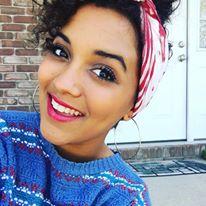
Torie is a doctoral student in Sociocultural Anthropology at Indiana University studying the impact of systemic racism on domestic transracial adoption. She’s a spoken word poet and a creative. A sister and an aunt. Torie also happens to be a transracial adoptee on a lifelong journey towards a healthy racial identity. To learn more about Torie and her work click here. Also consider financially supporting Torie here.
